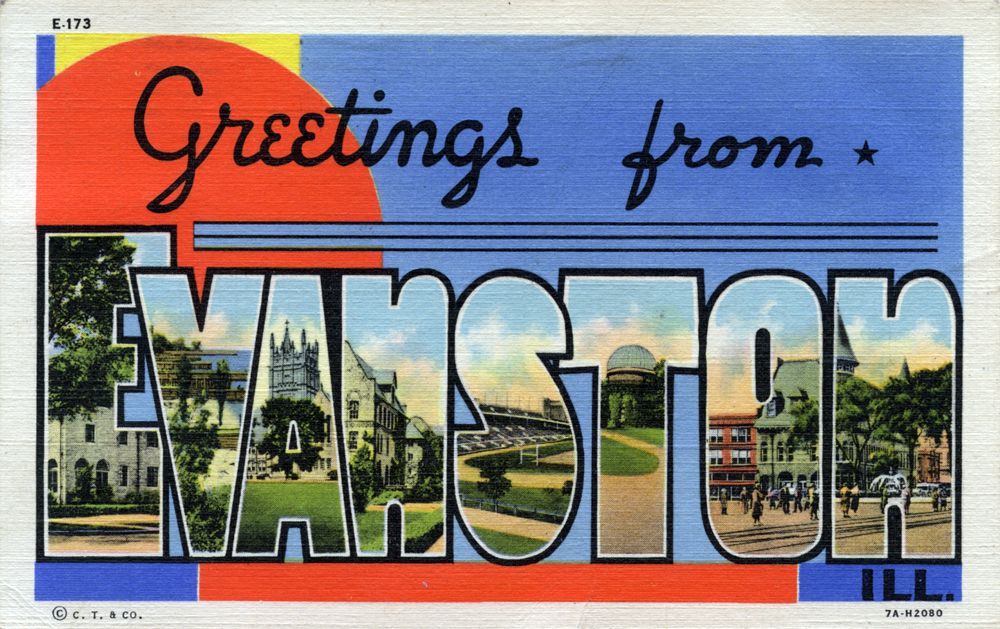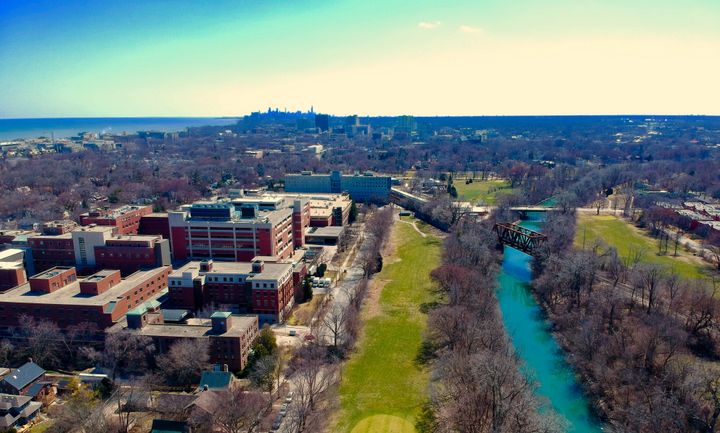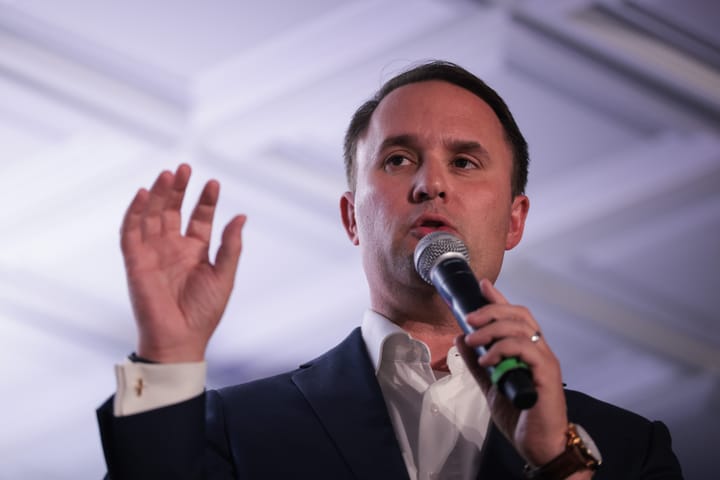Last month, Evanston became the first city in Illinois to adopt a public campaign financing program, one that supporters say aims to curb the influence of wealthy donors in mayoral elections and help increase the diversity of the candidate pool by amplifying small-dollar donations from Evanston residents.
On Sept. 26, the Evanston City Council adopted the “Small Donor Democracy Matching System for Fair Elections” ordinance, the first of its kind to pass in Illinois, which was approved days later by Mayor Daniel Biss, a supporter of the legislation. The Council passed the ordinance by a vote of 6-2 after it was brought forward over the summer by Council Member Juan Geracaris as a way, he said, to “counteract the influence of big money in elections.”
Under the new program, candidates for mayor will be able to receive funding matched at a 9-to-1 ratio for donations of up to $150 from city residents—for example, making an eligible $100 donation worth a total of $1,000. To take part, candidates must qualify by raising at least 100 small donations, and also agree to abide by a $150 contribution limit from an individual, corporation, PAC, party, or other donor. That amount, for candidates who opt into the program, stands in stark contrast to the $6,900 limit that individuals can give to candidate committees in the 2023-2024 election cycle under state law.
Candidates participating would be capped in the amount they can receive from the city at $81,000 per election cycle, and furthermore they would have to agree to limit their overall campaign spending to a maximum of $100,000 in each of the primary and general elections.
The Fair Elections ordinance was developed with the nonpartisan Reform for Illinois, a good-government research organization led by Executive Director Alisa Kaplan, an Evanston resident. Kaplan told Sludge that the measure, which Reform for Illinois hailed as “groundbreaking,” was passed into law through years of advocacy toward the group’s goal of helping candidates with grassroots connections to run for office.
“Evanston is considered a suburb, but it's also a diverse town that prides itself on its commitment to equity and on putting its values into practice,” said Kaplan.
“Evanston residents are well aware that there are serious economic divides in their city and that those can be reflected in their government,” said Kaplan. “And our mayoral races have gotten pretty expensive lately, with a good portion of that spending coming from personal wealth or big donors.
“This program aims to raise the voices of people who might otherwise not be heard because they couldn't afford a big campaign contribution,” said Kaplan. "It's aimed at empowering candidates who may not be wealthy or have wealthy friends to run competitive campaigns.”
During the Council’s deliberations over the Fair Elections proposal in June, Mayor Daniel Biss spoke in support of the program. In 2021, Biss, a former state senator, had run for mayor with a hefty fundraising edge over his opponents, and welcomed the prospect of more competitive local races.
“Small-donor matching programs provide a counterweight against the effects of big money—both individual and corporate—in politics, they make it possible for a greater diversity of candidates to run, and they help restore the public's faith in representative democracy," Biss told Sludge of his backing of the ordinance.
In its testimony for the program this summer, Reform for Illinois cited research showing that New York City’s small-donor match, used widely in city elections for decades and strengthened by voters in a 2018 ballot measure, has had strong effects in increasing donor participation. According to the nonprofit OpenSecrets, peer-reviewed studies found that New York City's matching program succeeded in bringing in more donors from more diverse neighborhoods, and at helping candidates run with a greater share of small-donor support than they would have without the program.
In New York City’s 2021 primary elections, small donor giving hit record highs, according to the New York City Campaign Finance Board, with more than 93% of donations given in amounts of $250 or under. After the general election that year, an analysis from the nonpartisan Brennan Center for Justice found that the City Council improved its representativeness of the population in terms of race and gender, with virtually all the women and people of color who won Council seats participating in the program. In a blog post examining the New York City results, the Brennan Center also highlighted findings that small-dollar matches in the 2020 election cycles of Portland, Oregon and Washington, D.C. worked to diversify the donor pool and increase donor participation in lower-income areas.
Across the country, at least 14 states and 25 local governments have adopted versions of public financing programs, according to a Brennan Center tracker. Small-dollar matches have been offered for decades in cities including Los Angeles, Long Beach, and San Francisco, and overall, public financing options cover up to one-third of the population nationwide.
In proposing the ordinance this summer, Geracaris pointed out that the new program’s cap on funds set aside for participating candidates (currently $68,750) amounts to less than $1 per resident, according to the Evanston RoundTable.
Geracaris told Sludge, “I think that people are concerned about the influence of big money in politics. The idea of creating a fund to even the playing field was exciting and the low cost for establishing the fund also made it seem attainable.”

With Evanston joining the ranks of cities offering a public match, Reform for Illinois’ Kaplan told Sludge that she hopes it will serve as a model for Chicago lawmakers seeking to develop and adopt a version for city voters, especially after a bruisingly high-spending mayoral race. In a questionnaire from Reform for Illinois earlier this year, both candidates who advanced to the runoff for Chicago mayor, Brandon Johnson and Paul Vallas, gave their support for rolling out a public financing program. Last year, Chicago Alderman Matt Martin introduced a Fair Elections ordinance that would match qualifying donations at a 6-to-1 ratio for participating candidates for mayor, city clerk, treasurer, and city council.
In Chicago, Martin is now the chair of the Committee on Ethics and Government Oversight, which in a January hearing on the proposal heard testimony from first-term New York City Council Member Shahana Hanif on her experience running in the public matching program: “I ran with no ties to institutional wealth or the wealth of the political establishment and special interest groups. Many of my opponents came from more privileged backgrounds. But because of our city’s public matching program, we ran on a more even playing field.”
Of the new program, Kaplan said, “The goal is to get a government that is representative of all of Evanston's communities and accountable to all of Evanston's communities.”



